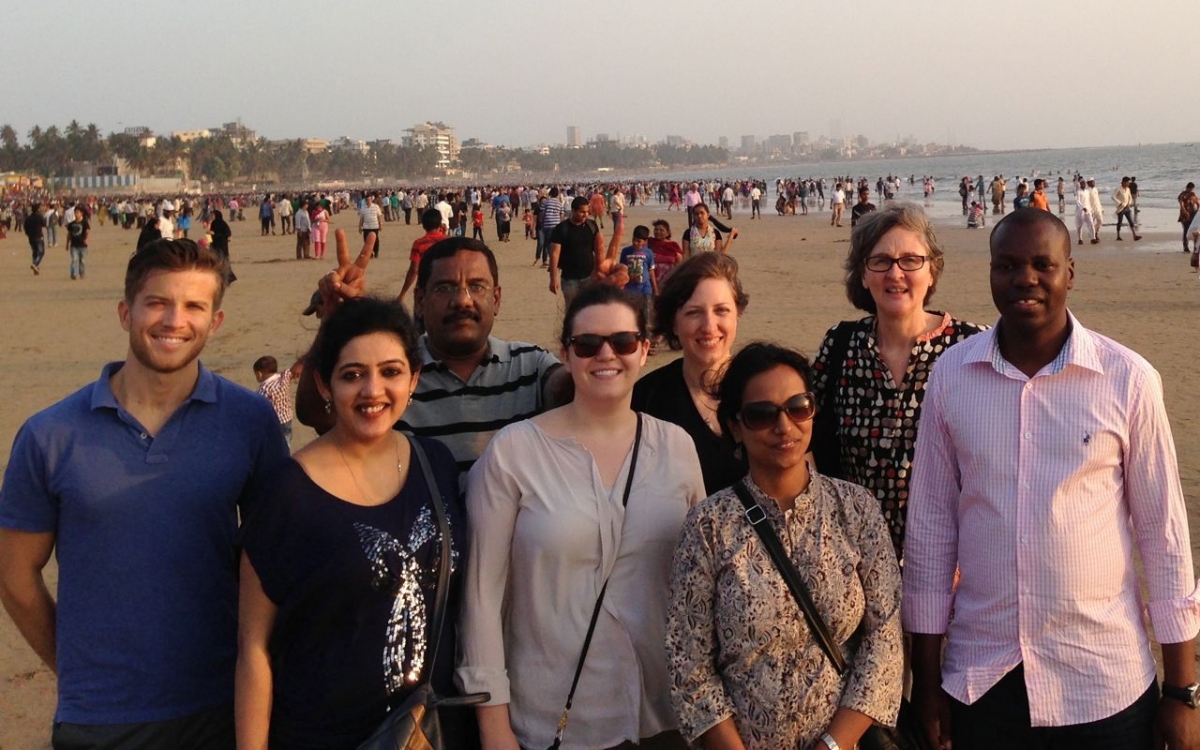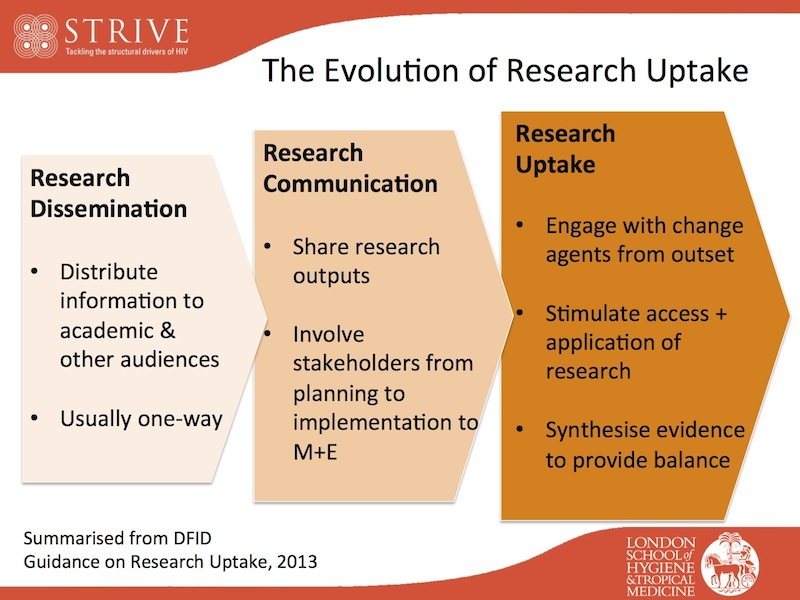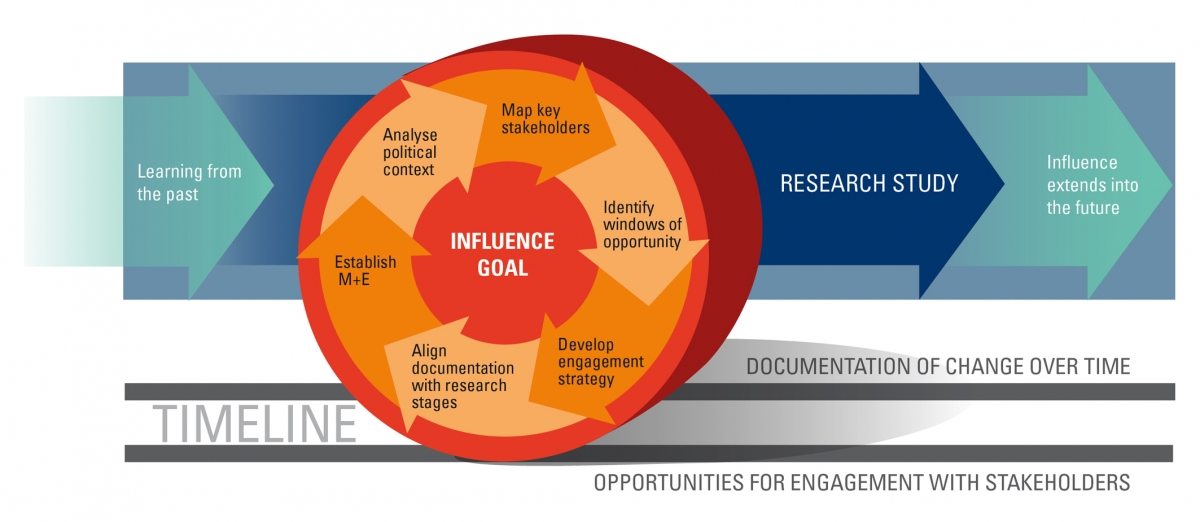Public health research is meant to improve people’s lives, so it implies a change agenda. For evidence and findings to shift policy and practice, however, it is necessary to be proactive and strategic about research uptake.
STRIVE’s approach to research uptake is called Knowledge into Action (KiA). STRIVE works to effect concrete change at multiple levels:
- At the international level and in coordination with DFID, STRIVE engages with multilateral agencies, funders and other international players in efforts to keep the concept of structural drivers alive and significant within HIV discourse, research, plans and budgets
- At the national level, STRIVE partners identify and influence specific policies, programmes or practices that are strategic and structural as well germane to their research work
- At the institutional level, STRIVE partners adopt or enhance a strategic influence 'lens' within their own practice and share this approach more broadly.
Annie Holmes leads STRIVE’s KiA team, which is made up of two representatives from each member insitution. As a crucial first step, partner organisations prepared landscape analyses, reviewing the structural context for STRIVE work and potential impact.
Team members develop and implement a research uptake strategy for their organisation and for each research programme.
We now devise an influence strategy at the very beginning of an intervention or study rather than at the end. We build our capacity by developing an influence strategy that is intertwined with the intervention and research.
As STRIVE partners engage with stakeholders over time, they gain a clearer understanding of the evidence needs and decision-making processes that shape policies and programmes. Engagement is key to creating an enabling environment for research uptake. STRIVE’s research uptake strategy is summarised in its Theory of Change and in its model (adapted from ODI, click the image below to view as a PDF).
STRIVE’s challenge is to translate the concept of 'structural drivers' into real-life, easily understood examples, such as:
- Infographic: Tackling the structural drivers of HIV
- SASA! video: Prevent violence against women now
- Stigma reduction case studies
- Special issue of the Journal of the International AIDS Society on structural drivers
- FT.com editorial, World response to AIDS needs more vigour
- Letter to The Lancet, Paying girls to stay in school: A good return on HIV investment?
- Infographic: Transactional Sex - What it is and why it matters
Approaches to research uptake have developed considerably over the past ten years. Further resources available on the STRIVE website include:
- DFID's Guide to Research Uptake
- Presentation from the KiA team, STRIVE annual meeting 2013
- STRIVE Learning Lab on using participatory photography in research
- STRIVE Learning Lab on stakeholder analysis
- Describing the impact of health research: A research impact framework
- Policy Action Network newsletter

STRIVE KiA Team at the annual meeting in Mumbai, 2013
[Research] findings are too important to be known only within a small circle of fellow scholars. ... [They] ought to guide government policy (because if a better way of doing anything is discovered, surely we should legislate to make it happen?) and public opinion (if our taxes are paying for your research, shouldn’t we know what you’re up to and what you’ve found out?).
Tony Coll, presentation to Wales Environment Research Hub

Making the SASA! video in Uganda

